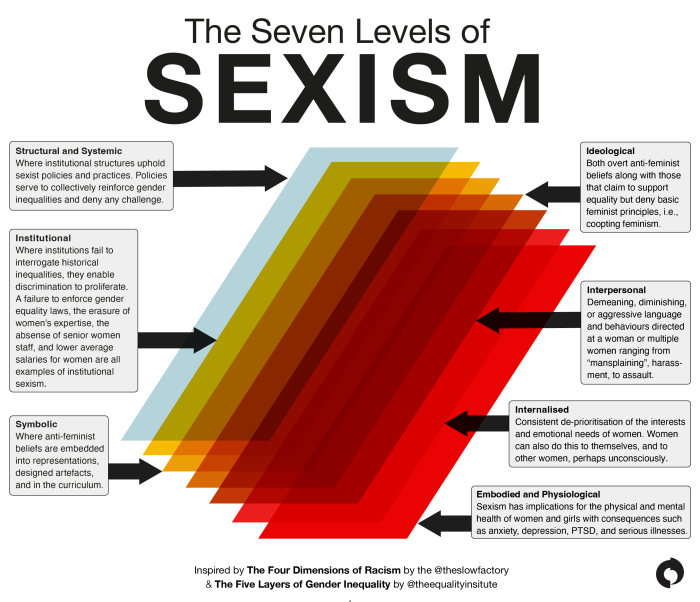Greenwashing is normal in industries involved with unsustainable development. In my attempts to help highlight greenwashing, I have encountered resistance in the form of sexism. It seems that far too many people cannot recognise sexism when it is happening. In response to these experiences, I have made a handy graphic. Perhaps this tool will help identify it when it occurs so changes can be made.

Thanks to the people @slowfactory and @theequalityinstitute for the inspiration. Also I need to say that as a white women, I have privileges denied to the majority of people on this planet. All the dynamics described above intersect with other types of discrimination faced by people of colour and other groups who face much more severe types of structural and systemic discrimination.
